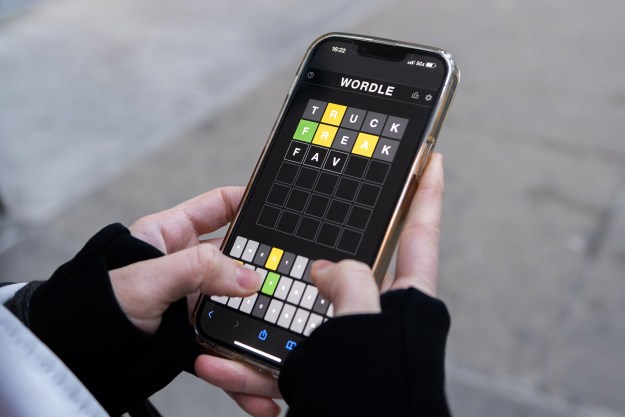The New York Times is interfering with the possible guesses and answers for Wordle. The new version of the popular word-based puzzle has deviated from the original, which means that some players might not get the same solutions to Wordle puzzles as everyone else anymore.
On January 31, Wordle was acquired by the Times to bolster the news publication’s casual gaming offerings. While Wordle isn’t gated behind a paywall like many feared just yet, the Times is making gameplay changes despite promising it wouldn’t.
The Times’ version of Wordle doesn’t allow certain problematic words — which BoingBoing details — to be used as guesses or solutions anymore. That’s understandable, but it has also removed some ordinary words like “fibre” and “pupal” just because they are obscure or too similar to other words.
Even worse, The Verge points out that this change means the Times’ Wordle skipped over “agora,” February 14’s original word. This means that players who haven’t refreshed their browser since starting to play the game will now see different solutions from everyone else.
The Times did officially comment on the matter, telling ABC News reporter Michael Slezak that “we are updating the word list over time to remove obscure words to keep the puzzle accessible to more people, as well as insensitive or offensive words.”
Just got this explanation from the NYT… pic.twitter.com/0gqHh23Eyi
— Michael Slezak (@MikeySlezak) February 14, 2022
While The New York Times does recommend that people just refresh their browsers to access the new list, a puzzle game that’s only supposed to have one answer now having multiple is a big problem. It also compounds issues some players were already having with win streaks carrying over.
This whole debacle shows that even Wordle wasn’t immune to acquisition woes, even if they weren’t the paywall-related problems we originally expected. Avid
Editors' Recommendations
- NYT Mini Crossword today: puzzle answers for Thursday, April 18
- If you love Wordle and Connections, Puzzmo may be your next daily obsession
- Move over, Wordle: The New York Times has a new puzzle game
- Wordle’s wild year: New York Times breaks down the phenomenon’s big 2022
- CES 2023: Wordle will take to the skies thanks to Delta Air Lines



